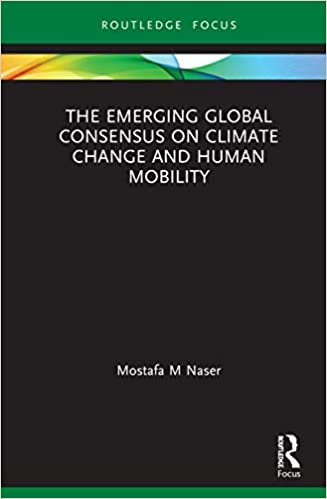The Emerging Global Consensus on Climate Change and Human Mobility (Routledge Focus on Environment and Sustainability) 1st Edition by Mostafa M Naser
HARDCOVER
[106 pages]
PUB: November 06, 2020
Description
This book examines whether a global consensus is emerging on climate change and human mobility and presents evidence of a slow-moving but dynamic, step-by-step process of international policy development on climate-related mobility.
Naser reviews the range of solutions offered to address climate-related mobility problems, such as extending the 1951 UN Refugee Convention, adopting an additional protocol to the UNFCCC or creating a new international treaty to support those facing climate-related migration and displacement problems. He examines the accumulating stock of international policies and initiatives relevant to climate-related mobility using a framework of six policy areas: human rights, refugees, climate change, disaster risk reduction, migration,and sustainable development. He uses this framework to define and summarise the main UN actions and milestones on climate-related mobility. Despite the difficult context affecting the global community of worsening climate change impacts and human rights under threat, Naser asserts that the foundations of global consensus on climate-related mobility have been built, particularly in the last decade.
This book will be of great relevance to students, scholars and policy-makers with an interest in the increasing interface between climate change and human mobility policy issues.
| Weight | 0.9 lbs |
|---|---|
| Dimensions | 8.7 × 5.5 × 0.5 in |
| Author | |
| Format | |
| ISBN-10 | |
| Language | |
| Publication Date | |
| Publisher |
Be the first to review “The Emerging Global Consensus on Climate Change and Human Mobility (Routledge Focus on Environment and Sustainability) 1st Edition by Mostafa M Naser”
You must be <a href="https://webdelico.com/my-account/">logged in</a> to post a review.































There are no reviews yet.